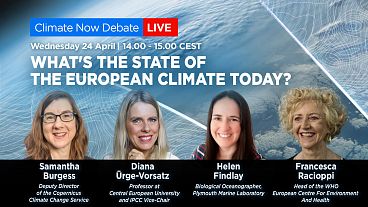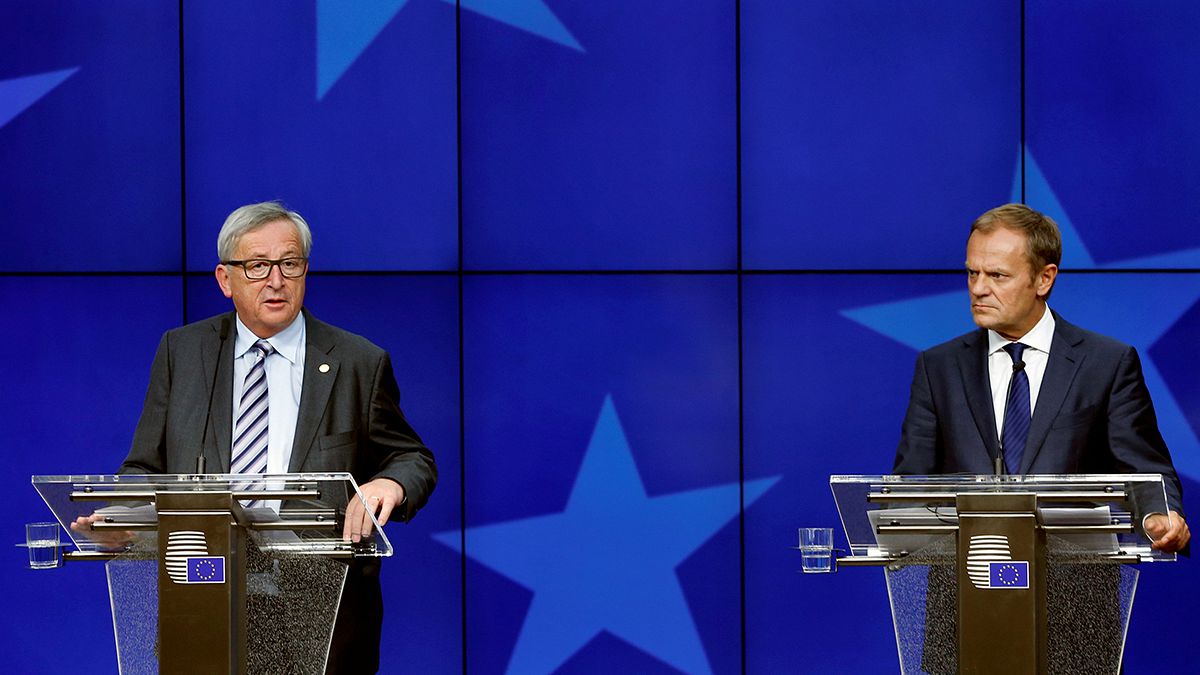The curtain has come down on the EU summit at a time some would suggest it’s curtains for the bloc.
The curtain has come down on the EU summit at a time some would suggest it’s curtains for the bloc. Brexit dominated the summit and gave traction to the blame game with British Prime Minister David Cameron the natural target. Others were also in the firing line.
“I will not let myself be encouraged or discouraged by the press. The media has written that the Dutch voted against the EU – Ukraine agreement because I was mixed up in it and now it is saying the British voted to leave the EU because I was mixed up in that as well. Frankly I do not care,” European Commission President Jean Claude Juncker told a press conference.
The president was accused of not taking a strong enough position ahead of the referendum with few stirring speeches to defend the EU. That, believe some makes him responsible for the earthquake which has shaken the bloc. Several European leaders believe endemic problems have been swept under the carpet. Brexit is a lesson to address those issues now.
“The outcome of the UK referendum mirrors a series of crises that has been affecting the EU for a long time. European leaders have been unable to solve those crises and have been trying to mask them instead. Today our task is to draw conclusions from what happened in the UK,” opined Beata Szydlo, Polish Prime Minister.
But the criticism aimed at the head of the EU executive is only the tip of the iceberg. Below the surface the governance and the functioning of the union has been called into question.
Europeans use the ballot box as their collective democratic voice. From the European institutions come decisions about which they have no say. Time for a shift in strategy.?
“It’s still seen by a lot of citizens as a project, which is brought forward by the political elite. What we have to look now, is that the European Union becomes from an elite project to a citizen project. And in that sense, we have to develop in the European Union much more democratic legitimacy,” explained Ernst Stetter, Secretary General of the Foundation for European Progressive Studies
The now bloc of 27 will be debating the controversial TTIP – the Transatlantic Trade and Investment Partnership. Critics say the negotiations have been carried out in secret and are undemocratic.
Will lessons have been learned from Brexit? Jean Claude Juncker has urged EU leaders to back the deal. Many including David Cameron were unhappy at the voting system which brought the former prime minister of Luxembourg to power in 2014.
“I believe this was a bad for Europe, because the position of the council risks undermining the power of national governments by handing further power to the European Parliament,” he told the House of Commons in 2014.
It has been argued that the rise in anti-EU feeling started back in 2014 with Juncker’s appointment. But what is clear is that the ground swell of criticism has the potential to grow into a tidal wave. Have the lessons been learned to withstand it?


